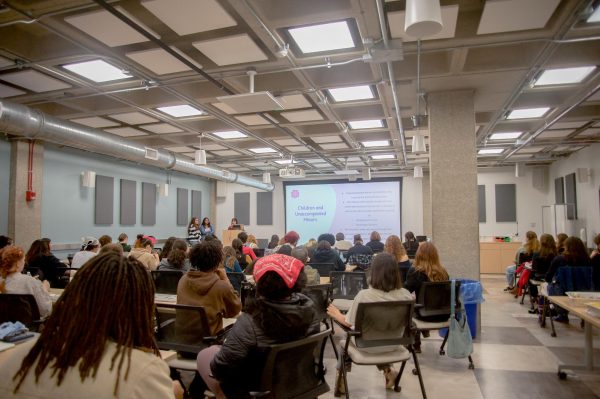Moderate Candidates Are Worth Our Time
Until recently, the use of the word “liberal” in a negative sense was monopolized by conservatives. It was used to demean and mock what they viewed as the kind of politics that made everyone oversensitive and gave unnecessary handouts to people who didn’t pull themselves up by their bootstraps. Despite these efforts to belittle liberals, liberalism was once considered the political embodiment of social justice. Young, politically-minded idealists were content identifying with the movement, wearing their affiliation as a mark of pride when confronted by older relatives with conservative leanings.
Now, however, the political landscape is changing. Many young people have separated themselves from the liberal movement, calling themselves “progressives” or “leftists” instead. They are demanding more progressive policies than ever before and are getting frustrated with the so-called establishment’s failure to keep up. In light of this change, progressive young adults have started to do what conservatives have always done: make “liberal” a dirty word.
If 2021 taught us anything, it’s that moderates are faring better than progressives in general elections. As the New York Times editorial board wrote on Nov. 4, “What is badly needed, is an honest conversation in the Democratic Party about how to return to the moderate policies and values that fueled the blue-wave victories in 2018 and won Joe Biden the presidency in 2020.” Moderate doesn’t have to mean Joe Manchin moderate nor should it. However, we do need to be realistic about the kinds of candidates who can get elected, especially in highly contested races.
With the U.S. Senate in a 50-50 deadlock heading into the 2022 midterms and an Ohio seat left open, the upcoming race will prove to be both consequential and highly competitive. The last thing we need is for a Trump-loving Republican candidate to win the election. To keep that from happening, we need to ensure the Democrat is popular enough to beat out someone like Josh Mandel, a far-right member of the Republican Party.
This puts college students, and Oberlin students in particular, in a very difficult position. On the one hand, there is a well-founded reason for our reputation as the most progressive college in the country. Many, if not most, students on campus view themselves as progressives or leftists and only begrudgingly vote for more moderate liberal politicians. As college students who are just barely old enough to vote, it is understandable that the more progressive among us don’t want to compromise their political principles. We are, after all, in the “honeymoon phase” of our political action, giddy that we can finally cast a ballot.
On the other hand, regardless of our individual politics, we are still squarely in the Midwest, where Trump flags abound. Here in Ohio, we have one Democratic and one Republican senator. Until 2020, the state predicted the outcome of every presidential election since 1964, making it the ultimate swing state. As members of the Ohio electorate, we have a responsibility to contend with and contribute to the reality that Ohio votes are important for the whole country.
Many progressives have been upset by the amount of support Ohio Congressman Tim Ryan has received for his Senate campaign, preferring instead to support the more progressive Morgan Harper. However, Ryan is the Democratic Party’s best chance at beating out a Mandel- or J.D. Vance-like figure come November, and he still supports President Biden’s ambitious policies like passing the Equality Act — he was one of its original co-sponsors — and increasing the federal minimum wage to $15 an hour.
At Oberlin, I’ve heard plenty of criticism, and sometimes even contempt, for some of the more moderate politicians on the national stage. There seems to be this notion that moderates like Biden or Harris don’t deserve our time and energy. We actively campaign against them in the primaries, risking losing on electability in the general election, and then when moderate Democrats win those primaries, some people sulk and say, “No help from us,” while others put great effort into phone banking and working in other capacities to get the nominee elected, even if they weren’t their first choice.
I saw posts last year from progressive acquaintances — though not from Oberlin students, as I was still in high school — saying that they wouldn’t vote and if Trump won, we couldn’t blame them because Biden wasn’t progressive enough. This is the kind of rhetoric I’m concerned about heading into 2022. If Tim Ryan wins the primary, we at least need to support him, phone bank for him, and vote for him in November, even though he isn’t many people’s first choice. Beyond that, I won’t tell you whom to campaign for and whom to vote for when the Senate primaries roll around, but given Biden’s ambitious agenda and the fact that Democrats stand to lose the Senate, there is something to be said for nominating a candidate who can win over some Republican votes in this Midwestern swing state, where we might still have a fighting chance.


